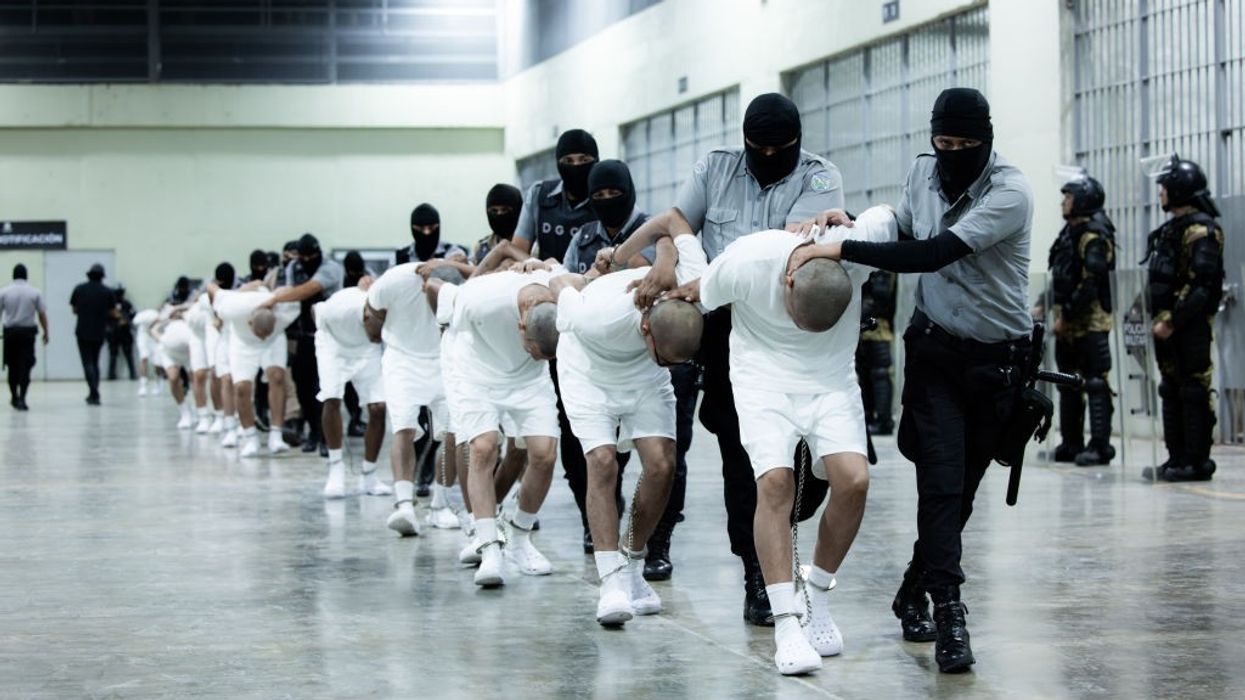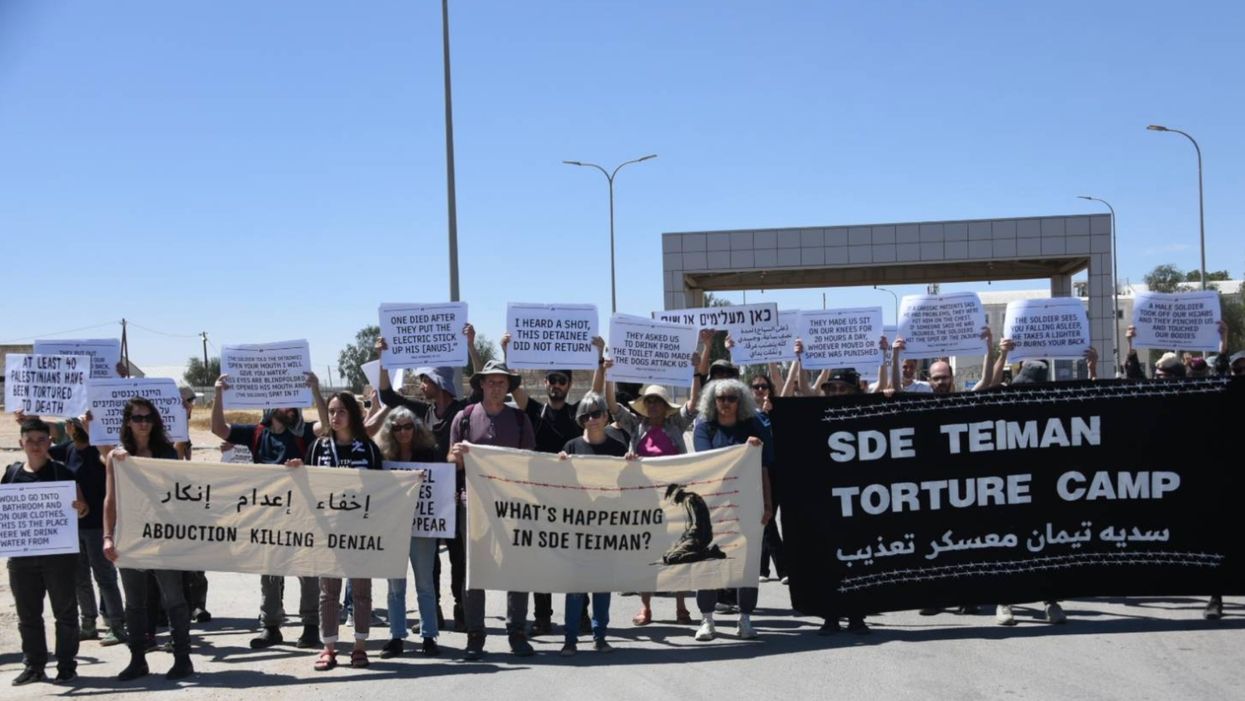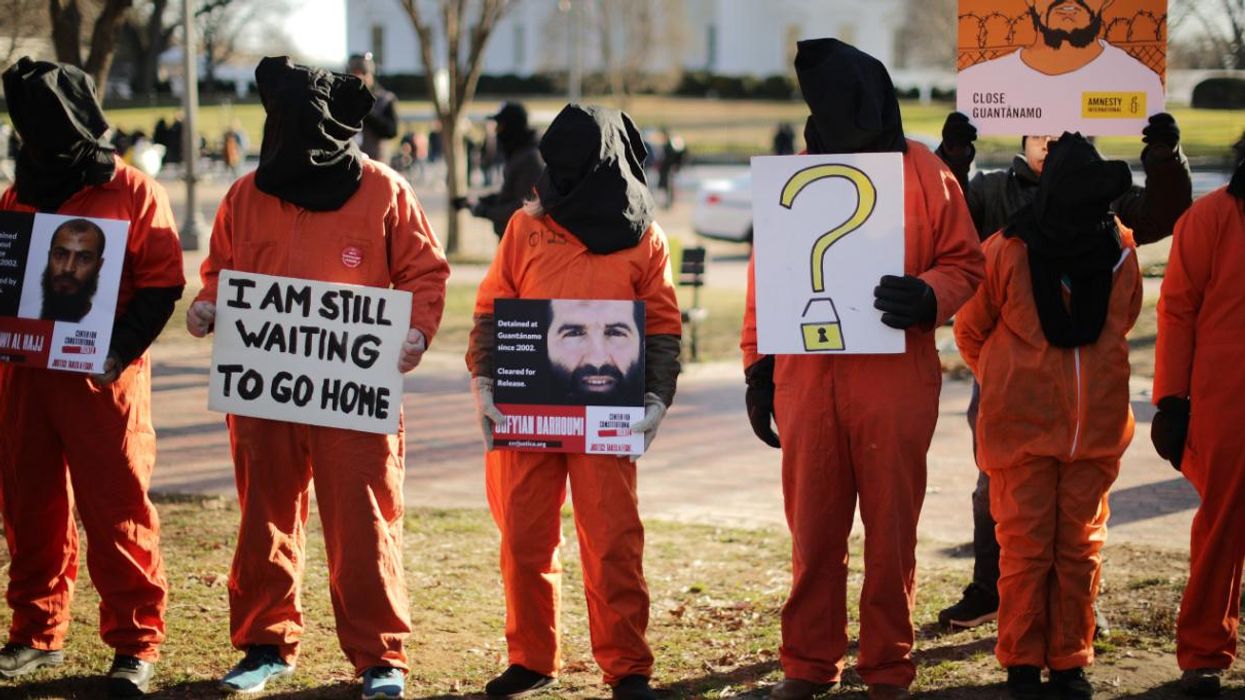Amnesty documented the cases of 21 men, five women, and one 14-year-old boy taken from Gaza and held in indefinite incommunicado detention in facilities including the notorious Sde Teiman camp in Israel's Negev Desert for periods of up to four-and-a-half months, without access to lawyers or contact with their families.
"All those interviewed by Amnesty International said that during their incommunicado detention, which in some cases amounted to enforced disappearance, Israeli military, intelligence, and police forces subjected them to torture and other cruel, inhuman, or degrading treatment," the report states.
"Israeli authorities are using the Unlawful Combatants Law to arbitrarily round up Palestinian civilians from Gaza and toss them into a virtual black hole."
Israel's Unlawful Combatants Law allows the Israel Defense Forces (IDF) to detain anyone from Gaza that they suspect of being engaged in the fight against Israel or posing a threat to its national security indefinitely without charge, trial, or evidence. Last December, the law was amended to allow the IDF to hold suspects for up to 96 hours without a detention order, up to 75 days without being brought before a judge, and up to three months without seeing a lawyer.
"While international humanitarian law allows for the detention of individuals on imperative security grounds in situations of occupation, there must be safeguards to prevent indefinite or arbitrary detention and torture and other ill-treatment," Amnesty International secretary general Agnès Callamard said in a statement. "This law blatantly fails to provide these safeguards. It enables rampant torture and, in some circumstances, institutionalizes enforced disappearance."
"Our documentation illustrates how the Israeli authorities are using the Unlawful Combatants Law to arbitrarily round up Palestinian civilians from Gaza and toss them into a virtual black hole for prolonged periods without producing any evidence that they pose a security threat and without minimum due process," Callamard added. "Israeli authorities must immediately repeal this law and release those arbitrarily detained under it."
According to the report, "those detained included doctors taken into custody at hospitals for refusing to abandon their patients; mothers separated from their infants while trying to cross the so-called 'safe corridor' from northern Gaza to the south; human rights defenders, [United Nations] workers, journalists, and other civilians."
Former detainees at Sde Teiman said they were blindfolded and handcuffed for their entire imprisonment, forced to remain in painful stress positions for hours on end, and prevented from speaking to other prisoners or even raising their heads.
Said Maarouf, a 57-year-old pediatrician kidnapped by Israeli troops during an attack on al-Ahli Baptist Hospital in Gaza City in December 2023, was detained for 45 days at Sde Teiman. He described being constantly blindfolded and handcuffed, beaten, starved, and forced to sit on his knees for long periods.
A 14-year-old boy taken from his home in Jabalia in January was held for 24 days at Sde Teiman. He told Amnesty that he was jailed with more than 100 adults in a single barrack and was kicked, punched in the head, and repeatedly burned with cigarettes. Amnesty observed bruises and burns on the child's body when it examined him in February. Like other detainees interviewed by the rights group, the boy said he was always blindfolded and handcuffed and was not permitted to see a lawyer or his relatives.
Earlier this year, Israeli medics working at Sde Teiman said amputations of hands and feet due to injuries from constant handcuffing were "a routine event."
The five women interviewed by Amnesty were initially jailed at a military detention center in an illegal Israeli settler colony in the occupied West Bank, then at Dimon women's prison in northern Israel. All five said they were beaten during transport.
One woman taken on December 6 said she was separated from her two children—ages 4 and 9 months—and initially held alongside hundreds of male prisoners. She was beaten, forced to remove her veil and photographed without it, and subjected to the mock execution of her husband.
"On the third day of detention, they put us in a ditch and started throwing sand," she said. "A soldier fired two shots in the air and said they executed my husband and I broke down and begged him to kill me too, to relieve me from the nightmare."
Another woman said guards threatened: "We will do to you what Hamas did to us. We will kidnap and rape you."
These and other accounts are consistent with the testimonies of Israeli whistleblowers and former prisoners at Sde Teiman and other Israeli detention facilities.
Former detainees and human rights defenders have described Sde Teiman as "Israel's Guantánamo" and "more horrific than Abu Ghraib"—the notorious U.S. military prison in Iraq where prisoners were tortured and dozens died. Palestinians held at Sde Teiman and at other detention sites described being electrocuted, mauled and even raped by dogs, constantly beaten, starved, and subjected to other torture and abuse. Other former Sde Teiman detainees said they witnessed a prisoner raped to death, possible executions, and other atrocities.
IDF officials told the Israeli newspaper Haaretz last month that the IDF is investigating the in-custody deaths of dozens of detainees, including 36 who died or were killed at Sde Teiman since October, when Israel began its retaliatory war following the attack by Hamas-led militants that left more than 1,100 Israelis and foreign nationals dead—some of whom were killed by Israeli troops.
Over 240 other people, mostly Israelis, were kidnapped and taken to Gaza. A Human Rights Watch report published Wednesday details war crimes and crimes against humanity including murder and rape perpetrated by members of five Palestinian armed groups that took part in the October 7 attacks.
Since October, Israel's siege, bombardment, and invasion of Gaza has left at least 139,000 Palestinians dead, maimed, or missing, around 90% of Gaza's 2.3 million people forcibly displaced, and starvation—sometimes deadly—running rampant.
Israel is on trial for genocide at the International Court of Justice in The Hague. International Criminal Court Prosecutor Karim Khan has also applied for warrants to arrest Israeli Prime Minister Benjamin Netanyahu, Defense Minister Yoav Gallant, and three Hamas leaders for war crimes and crimes against humanity, including "extermination."




